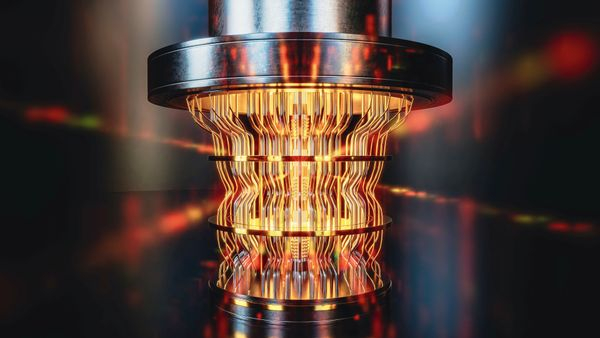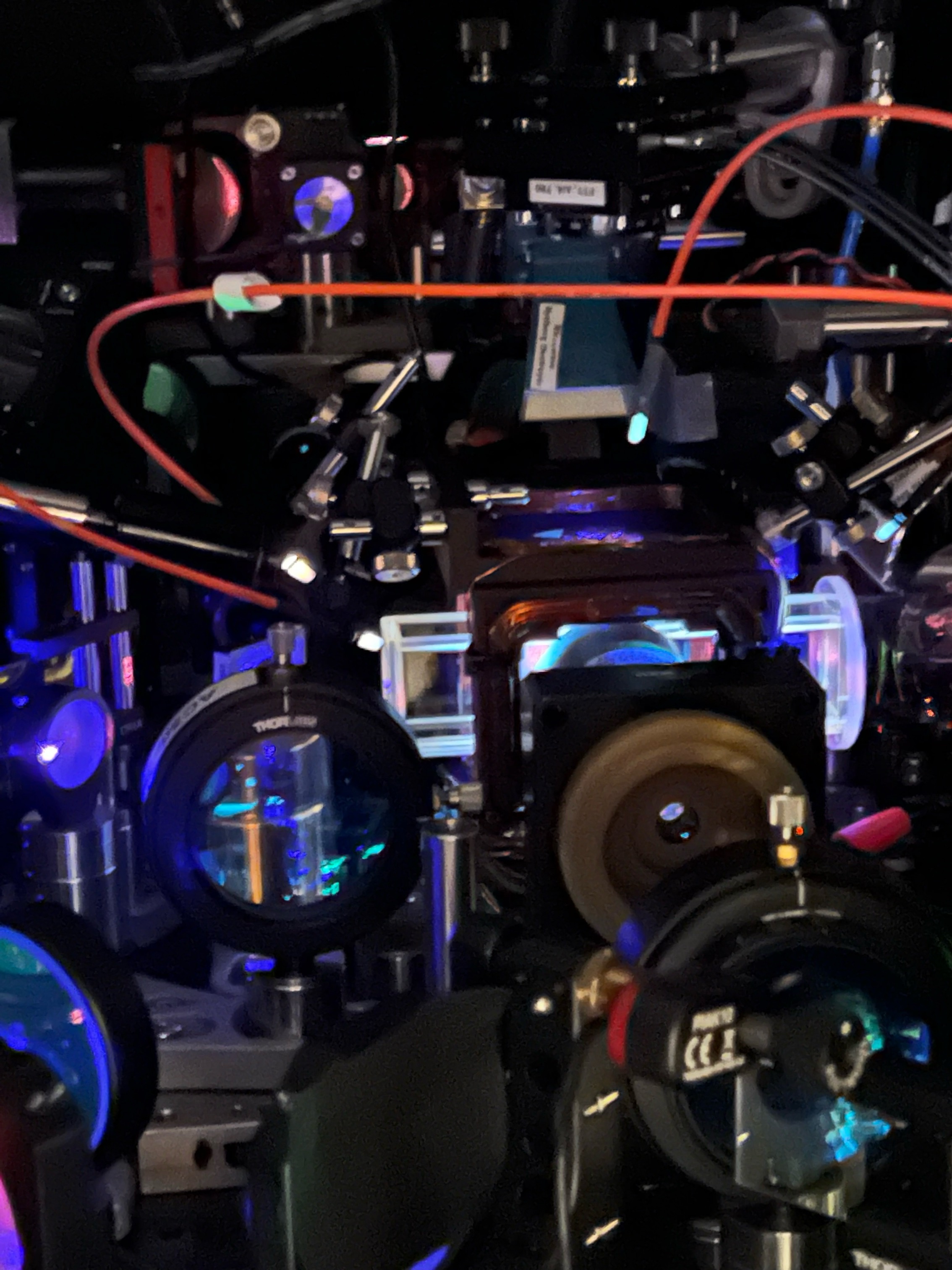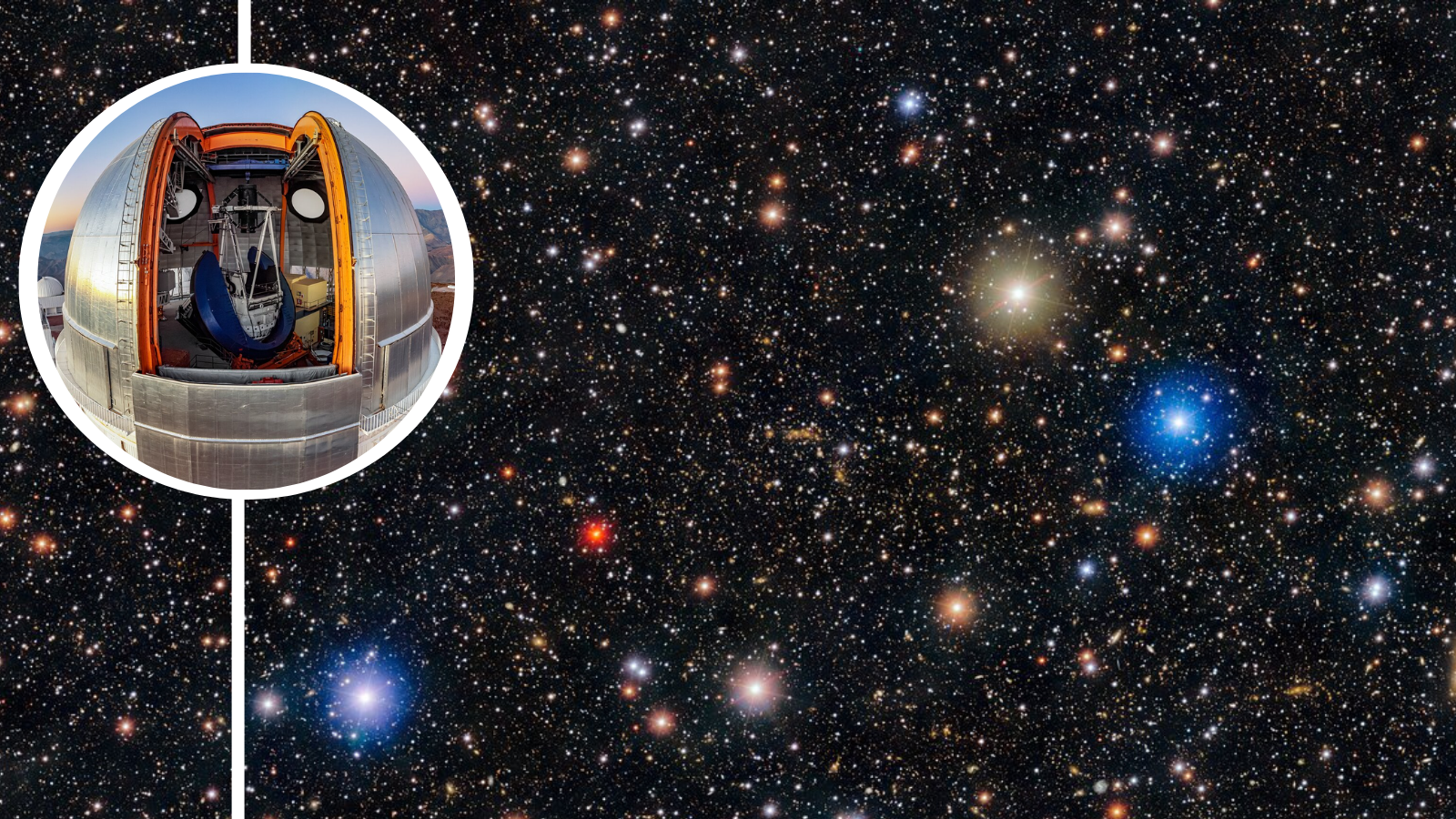World's 1st fault-tolerant quantum computer launching this year ahead of a 10,000-qubit machine in 2026
QuEra has dramatically reduced the error rate in qubits — with its first commercially available machine using this technology launching with 256 physical qubits and 10 logical qubits.

The world's first commercial fault-tolerant quantum computer with "logical qubits" may be running before the year's end.
Logical qubits — physical quantum bits, or qubits, connected through quantum entanglement — reduce errors in quantum computers by storing the same data in different places. This diversifies the points of failure when running calculations.
The new machine, which has 256 physical and 10 logical qubits, will launch in late 2024, representatives from QuEra, the startup that is building it, said in a statement.
The announcement follows a new study, published Dec. 6, 2023 in the journal Nature, in which researchers from Harvard, QuEra and several other institutions demonstrated a functioning quantum computer that contained 48 logical qubits — the largest number of logical qubits tested to date.
Related: Nobel Prize in Physics goes to scientists who paved the way for quantum computing
"It is the first machine with quantum error correction," study co-author Harry Zhou, a physicist at QuEra and Harvard University, told Live Science in an email.
While this computer doesn't have enough power to be useful on its own, it provides a platform on which software programmers can start testing code for future quantum computers, Zhou said.
Breaking space news, the latest updates on rocket launches, skywatching events and more!
Why quantum computing needs error-correction
While conventional computers store information in bits with a value of either 0 or 1, quantum computers use qubits — which are a superposition between 0 and 1, thanks to the laws of quantum mechanics.
Qubits can also be stitched together using quantum entanglement to exist in multiple states simultaneously. This enables them to perform many calculations much faster than classical computers — assuming you can build a quantum computer with enough of them. But qubits can easily be disturbed, making them notoriously error-prone. Roughly 1 in 1,000 fail, versus 1 in 1 billion billion bits in conventional computers.
Quantum computers could outpace the best supercomputers if they incorporate millions of qubits, but the largest quantum computer built so far only has around 1,000 qubits, and qubits' high failure rate limits potential scale-up. Error correction could counteract qubits' tendency to fail, and building logical qubits is one way of doing it.
Logical qubits: turning down the quantum noise
The new error-correction system relies on data redundancy, where the same piece of data is stored in multiple places, Zhou said. Logical qubits perform the same calculations across several physical qubits — vastly reducing error rates if one or more physical qubits fail, because the data is available elsewhere so calculations can continue.
To make the logical qubit, researchers applied error-correcting computer code to regular qubits. They then set up logical gates, or circuits, between the qubits to entangle them. The quantum computer then calculates the 'syndrome' — a measure of whether it's likely an error has occurred or not. Using this information, the quantum computer corrects the errors and proceeds to the next step.
The new qubits represent a significant advance over past efforts. In 2023, the Google Quantum AI Lab demonstrated a 2.9% error rate using three logical qubits; Quera's error rate is 0.5% with 48 logical qubits. The world leader is the University of Oxford, which has achieved error rates of less than 0.01% — but only between two-qubit gates.
Last year, IBM also demonstrated error-correction technology in its 127-qubit Heron chip which reduced error rates fivefold compared with its other chips. But its first commercial fault-tolerant machine isn't expected until 2029.
QuEra plans to launch several quantum computers in the coming years, starting with a 30-logical-qubit, 3,000 physical qubit machine coming out in 2025. Its monster, a machine with more than 10,000 physical qubits and 100 logical qubits, is scheduled for 2026. "At 100 logical qubits, the [2026] machine can perform correct calculations that exceed the capability of today’s supercomputers," Zhou said.

Keumars is the technology editor at sister site Live Science. He has written for a variety of publications including ITPro, The Week Digital, ComputerActive and TechRadar Pro. He has worked as a technology journalist for more than five years, having previously held the role of features editor with ITPro.
An NCTJ-qualified journalist who specializes in technology, his path into journalism began at university. He immersed himself in student media while studying for a degree in Biomedical Sciences at Queen Mary, University of London. After graduating, Keumars wrote for a variety of local and national publications as a freelancer, including The Independent, The Observer, and Metro. While studying for his NCTJ certification, his work was commended in the category of ‘Top Scoop’ in the 2017 NCTJ awards. He’s also registered as a foundational chartered manager with the Chartered Management Institute (CMI), having qualified as a Level 3 Team leader with distinction in 2023.


